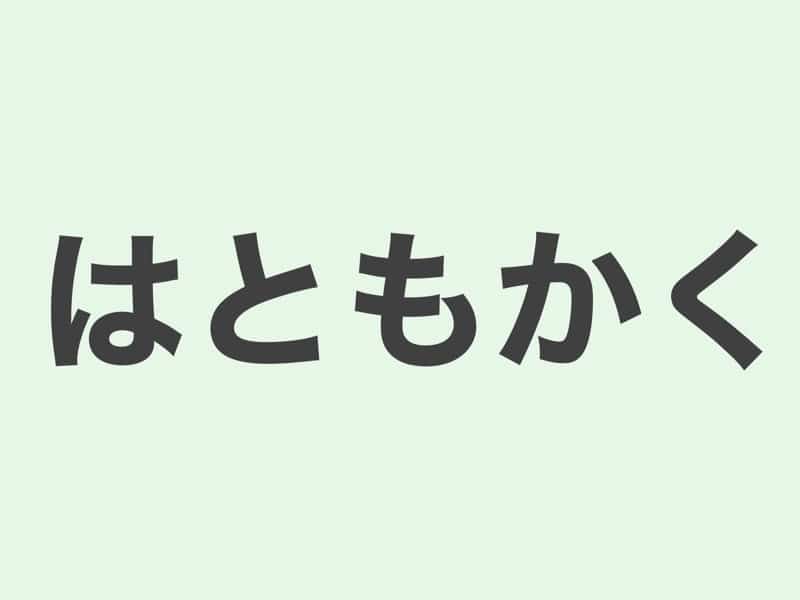説明 (Explanation)
文法(Grammar):名詞+はともかく、動詞・形容詞+かはともかく
意味 (Meaning):何かを優先して別のことを考慮しない、または別の側面に焦点を当てることを意味します。
英語(English):「はともかく」is a Japanese expression used to set aside one topic in favor of discussing another. It often translates to “aside from,” “regardless of,” or “leaving aside” in English.
JLPT Textbook Recommendations
例文 (Examples)
- 成功するかはともかく、まず挑戦することが大切だ。
- 彼の言うことが正しいかはともかく、試してみる価値はある。
- 面白いかはともかく、最後まで見てみるつもりだ。
- お金はともかく、調子が悪いなら病院へ行くべきです。
- 見た目はともかく、味はとても美味しい。
- 質はともかく、値段がとても安い。
ひらなが (Hiragana)
- せいこうするかはともかく、まずちょうせんすることがたいせつだ。
- かれのいうことがただしいかはともかく、ためしてみるかちはある。
- おもしろいかはともかく、さいごまでみてみるつもりだ。
- おかねはともかく、ちょうしがわるいならびょういんへいくべきです。
- みためはともかく、あじはとてもおいしい。
- しつはともかく、ねだんがとてもやすい。
英語翻訳 (English Translation)
- Whether I succeed or not is beside the point; what’s important is to challenge myself.
- Regardless of whether what he says is correct, it’s worth trying.
- Whether it’s interesting or not is beside the point; I plan to watch it until the end.
- Putting aside money, if you’re feeling unwell, you should go to the hospital.
- Setting appearance aside, the taste is very delicious.
- Regardless of quality, the price is very low.





コメント